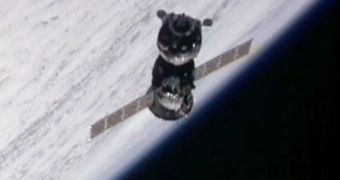According to reports in the Russian media, the country's authorities and Federal Space Agency (RosCosmos) have big plans for the nation's future in space. Nuclear-powered spacecraft are high on the priority list, as is the development of shields against space debris.
Russia has been dreaming about going to the Moon, Mars and other places in the solar system for many years, but it never had the technology to do so reliably and in a sustainable manner.
This is precisely the type of issue the current plans are trying to deal with, reports in the Russian Ria Novosti newspaper explains. And the nation is taking things one step at a time in achieving its goals.
Experts at the Central Research Institute of Machine Building came up with most of the plans, which are designed with manned exploration of other moons and planets in mind.
This is why a major focus is placed on safety, with developing a defense system against space junk and micrometeorites being a priority. At this point, spacecraft are very vulnerable to such impacts, which can easily compromise a very costly mission.
Around the Earth, the field of debris generated by rocket and satellite launches is growing by the day, and with it the chance that the junk will slam into operating satellites, breaking them apart as well.
While some researchers are focusing on developing methods of collecting the orbital trash, others are trying to make things happen the hard way, by protecting the spacecrafts going up into space.
“Protection of spacecraft modules against micrometeorite impact and space debris, based on the use of protective screens, that is passive protection, is at the limit of its technical capability due to weight restrictions,” experts at the organization said.
“This is why we need to develop new protection based on self-sealing systems capable of independently and quickly restoring the object's air-tightness in case of leaks,” they go on to say.
Past reports have also indicated that Russia is trying to develop a space-based system that would be responsible for sweeping debris our of orbit, and that it is paying up to $2 billion for it, Space reports.
“The corporation promised to clean up the space in ten years by collecting about 600 defunct satellites on the same geosynchronous orbit and sinking them into the ocean subsequently,” explains official Victor Sinyavsky.
He is based at the space juggernaut RSC Energia, the company that builds the Soyuz space capsules, alongside other critically-important components of the Russian space program, according to reports by the Xinhua news service and the Interfax news agency.
In addition to the defense shields, the country is also looking into creating space ships powered by nuclear energy, as well as into similarly-powered lunar or Mars bases. The efforts are estimated to have an initial cost of at least $580 million.

 14 DAY TRIAL //
14 DAY TRIAL //